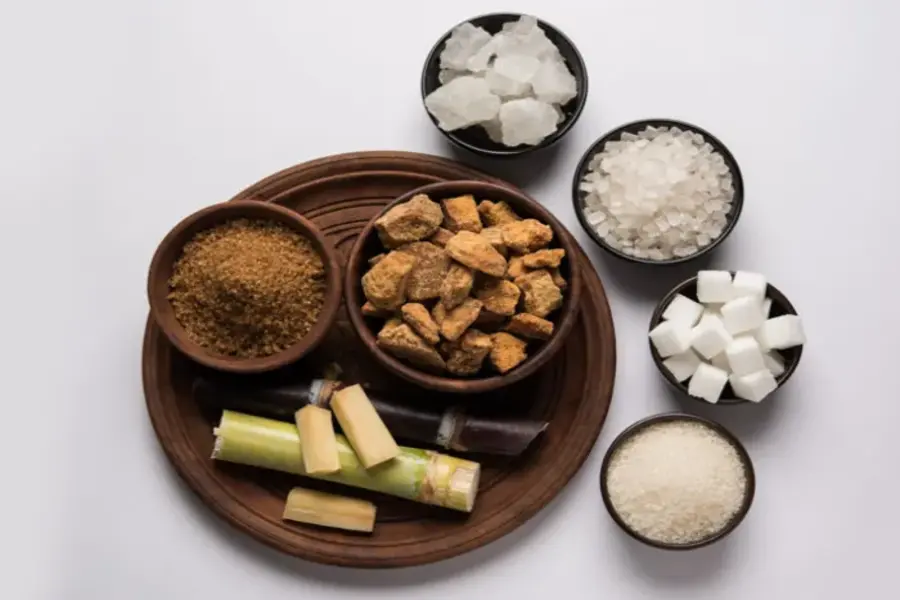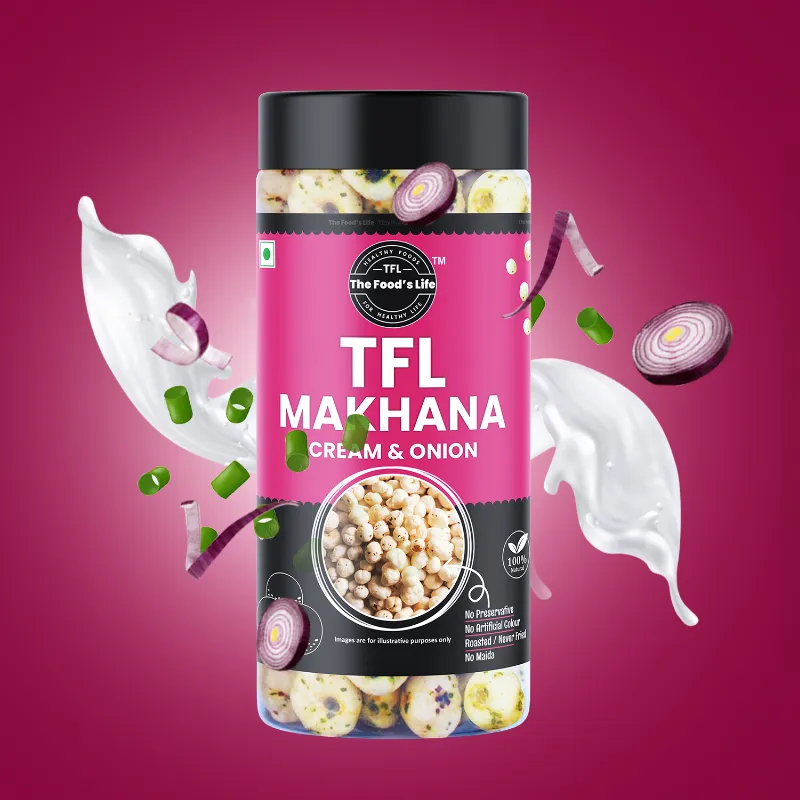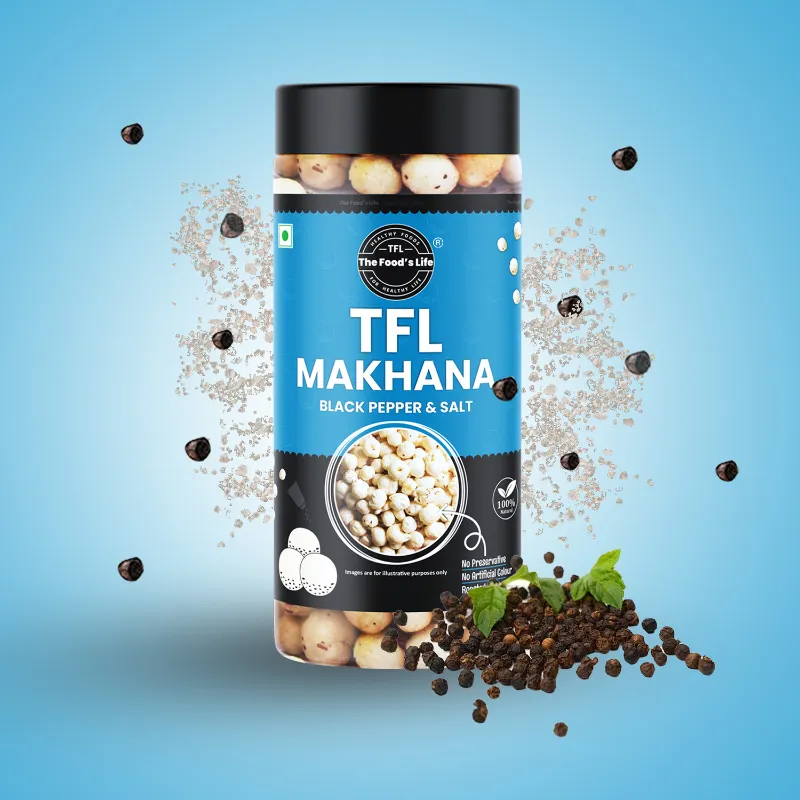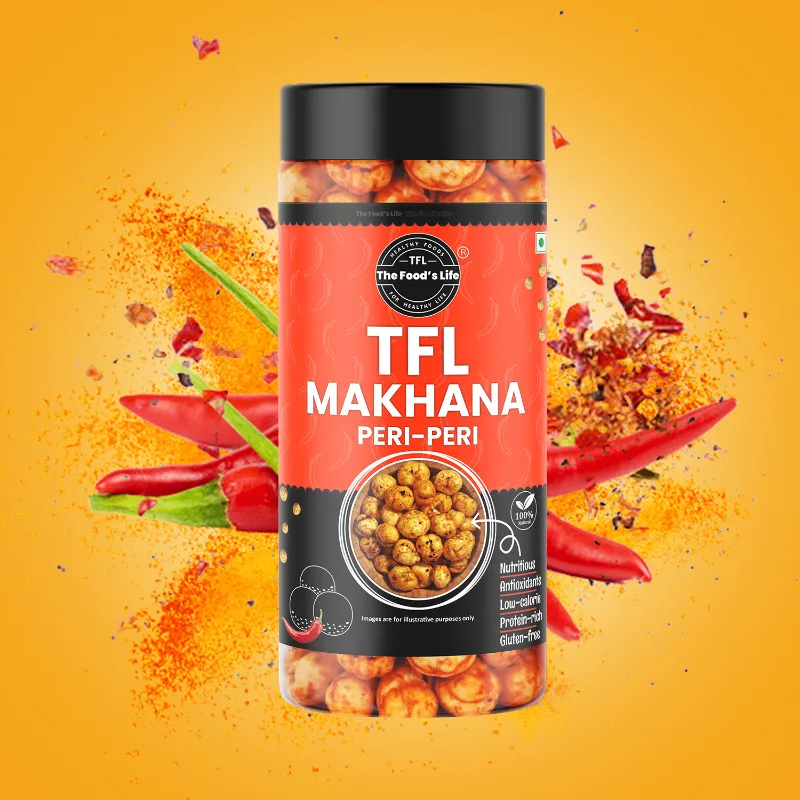In the world of sweeteners, sugar and jaggery are two popular choices. Both are used to sweeten food and beverages, but they differ significantly in their production, nutritional value, and impact on health. As more people seek healthier alternatives to refined sugar, jaggery is gaining attention for its perceived benefits. But what are the real differences between sugar and jaggery, and how do they affect your health and taste preferences?
In this blog, we will explore the key distinctions between sugar and jaggery, while highlighting delicious products like TFL Cookies—available in flavors like oat jaggery and chocolate jaggery—offering a healthier and tastier way to satisfy your sweet tooth.
Production Process
Sugar: Sugar, in its most common form, is derived from either sugarcane or sugar beets. The production process involves refining and processing the sugarcane juice or beet juice to extract the sugar crystals. This process strips away most of the nutrients, leaving behind pure sucrose. White sugar is further refined, while brown sugar contains some molasses, giving it a slightly different flavor and color but still lacks many of the nutrients found in the raw material.
Jaggery: Jaggery, on the other hand, is made from sugarcane or palm sap, and it undergoes a much less refined process. The sap or juice is boiled until it solidifies, without removing the natural molasses. As a result, jaggery retains many of the vitamins and minerals present in the raw material, such as iron, magnesium, and potassium. Its production is more traditional and involves minimal processing, which is why jaggery is often considered a healthier alternative to refined sugar.
At TFL, we’ve embraced the benefits of jaggery in our range of TFL Cookies. Our Oat Jaggery and Chocolate Jaggery cookies use jaggery instead of refined sugar, providing not just a delicious taste but also a more nutritious snack option.
Nutritional Value
Sugar: Refined sugar is nearly 100% sucrose, which means it contains no vitamins or minerals. It provides a quick source of energy, but it’s often referred to as “empty calories” because it doesn’t offer any nutritional benefits beyond energy. Consuming too much sugar has been linked to weight gain, diabetes, and other health issues.
Jaggery: Jaggery, in contrast, is considered a more nutrient-dense sweetener. It contains small amounts of vitamins and minerals such as iron, calcium, magnesium, and potassium. These nutrients can provide some health benefits, particularly when consumed in moderation. The iron content in jaggery, for example, can help with anemia, while its antioxidant properties may support overall health by fighting free radicals.
When you indulge in TFL Cookies made with jaggery, you’re choosing a snack that not only satisfies your sweet cravings but also provides more nutrition than those made with refined sugar. Whether it’s the Oat Jaggery or Chocolate Jaggery flavor, you’re opting for a healthier treat.
Taste and Flavor Profile
Sugar: Sugar has a very neutral sweet taste, which makes it a versatile sweetener for a wide variety of dishes and drinks. However, its simplicity can sometimes lack depth and richness in flavor, especially when compared to natural sweeteners like jaggery.
Jaggery: Jaggery, on the other hand, has a more complex and robust flavor profile. It’s often described as having caramel or toffee-like notes, with a slightly earthy taste. This makes jaggery an excellent choice for adding depth to baked goods, desserts, and even beverages. Its flavor can vary depending on the source (sugarcane vs. palm), but it generally has a richer, more intense sweetness compared to white sugar.
The use of jaggery in TFL Cookies enhances the flavor of the ingredients. The combination of oats and jaggery in our Oat Jaggery Cookies delivers a naturally sweet and slightly nutty flavor, while the Chocolate Jaggery Cookies offer a richer, more indulgent taste that’s still better for your health than cookies made with refined sugar.
Health Impact
Sugar: Excessive consumption of sugar is linked to a wide range of health problems. These include weight gain, obesity, type 2 diabetes, and heart disease. Sugar spikes your blood sugar levels quickly, leading to an energy boost followed by a crash, which can cause cravings for more sugary foods.
Jaggery: Jaggery is considered a healthier alternative because it doesn’t cause the same rapid spikes and crashes in blood sugar. Its slower absorption rate can provide a more sustained release of energy. Additionally, jaggery’s natural nutrients make it a better option for people looking to improve their overall diet. The presence of minerals like iron and magnesium means that jaggery can even offer some health benefits when consumed in moderation.
If you’re looking to reduce your sugar intake without sacrificing flavor, TFL Cookies made with jaggery are an excellent option. Our Oat Jaggery Cookies are a wholesome snack that provides slow-releasing energy, making them perfect for an afternoon treat or a quick breakfast on the go.
Glycemic Index (GI)
Sugar: The glycemic index (GI) measures how quickly a food raises blood sugar levels. Refined sugar has a high GI, meaning it is absorbed quickly into the bloodstream, causing rapid spikes in blood glucose levels. This can lead to insulin resistance over time and increase the risk of developing type 2 diabetes.
Jaggery: Jaggery has a lower glycemic index than refined sugar, which means it’s absorbed more slowly by the body, preventing sudden spikes in blood sugar levels. This makes it a more suitable option for people who are managing blood sugar levels or trying to prevent insulin resistance.
If you’re someone who needs to be mindful of blood sugar levels, TFL Cookies with jaggery offer a healthier alternative to traditional cookies made with refined sugar. Whether you’re enjoying the Chocolate Jaggery Cookies or the Oat Jaggery Cookies, you can snack with the knowledge that you’re choosing a lower GI option.
Environmental and Ethical Considerations
Sugar: The production of refined sugar often involves large-scale industrial farming, which can have negative environmental impacts. Sugarcane farming can require significant amounts of water and pesticides, contributing to soil degradation and water pollution. Additionally, the refining process itself is energy-intensive.
Jaggery: Jaggery is often produced on a smaller scale and with more traditional methods, which can have a lower environmental impact. Jaggery production requires less processing and fewer chemicals, making it a more eco-friendly option compared to refined sugar.
By opting for TFL’s Oat Jaggery or Chocolate Jaggery Cookies, you’re not only making a healthier choice for yourself but also supporting more sustainable and eco-friendly production methods.
Conclusion
While both sugar and jaggery are used to sweeten foods, their differences in production, nutritional value, flavor, and health impact make them distinct. Refined sugar may be more common and convenient, but it lacks the nutrients and depth of flavor that jaggery offers. Jaggery provides a more nutritious, complex, and health-friendly alternative to sugar, making it a better choice for those looking to improve their diet without sacrificing sweetness.
For a tasty, nutritious snack option, try TFL Cookies, available in flavors like Oat Jaggery and Chocolate Jaggery. These cookies combine the goodness of jaggery with wholesome ingredients, offering a delicious, healthier alternative to traditional sugar-laden treats. So, next time you're reaching for a sweet snack, consider the benefits of jaggery and enjoy a healthier indulgence with TFL!






